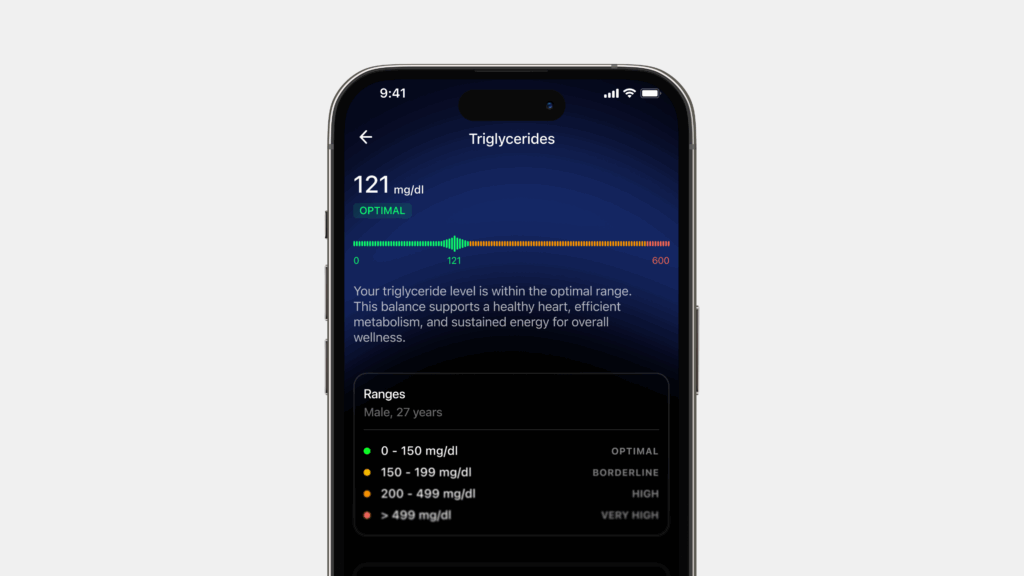Imagine you’re at a camp. There is a huge bonfire going, and everyone is warm. In an hour or so, the fire starts burning down, and you need more firewood. However, what’s left are just a couple of sticks which aren’t enough to keep the fire going, and within minutes, it extinguishes and what’s left behind are just the embers.
Our metabolism is just like this bonfire. The thyroid gland provides the hormones, the firewood, to keep our metabolism burning. However, when there aren’t enough hormones, our metabolism starts ‘burning’ less and less. This slowing down of our metabolism is called hypothyroidism.
Highlights
- The thyroid gland produces, stores and releases hormones into the bloodstream,
- These thyroid hormones play a major role in the human body’s metabolism, growth and development,
- Hypothyroidism occurs when your body doesn’t produce enough thyroid hormones.
What is the function of the thyroid gland?
The thyroid gland is a butterfly-shaped organ located at the base of your neck. Its function is to produce, store and release hormones into the bloodstream. It uses iodine from the foods you eat to make two main hormones: Triiodothyronine (T3) and Thyroxine (T4). The T3 and T4 levels always need to be in balance, which means neither too high nor too low. Two glands in the brain—the hypothalamus and the pituitary—work together to maintain this balance.
The T3 and T4 hormones travel through your bloodstream and enter almost every cell in your body. These hormones control the speed at which the cells metabolize (metabolic activity). For example, T3 and T4 regulate how fast your intestines process food. So, if T3 and T4 levels are low, you may have constipation/weight gain.
If T3 and T4 levels are high, you may have diarrhoea/weight loss. Some of the vital body functions regulated by the thyroid hormones include breathing, heart rate, central and peripheral nervous systems functions, body weight, muscle strength, menstrual cycle, body temperature and cholesterol levels.
What is hypothyroidism?
When the thyroid gland produces too few T3 and T4 hormones in your body, hypothyroidism sets in. Hypothyroidism is also called an ‘underactive thyroid’, and it is more common in women than men. People over the age of 60 are more prone to be affected by it, though young people too can get this condition, especially if they have a genetic predisposition towards thyroid problems.
If you have been recently diagnosed with hypothyroidism, you would be relieved to know that its treatment is simple, effective and extremely safe. It usually involves taking artificial hormones to augment your low hormone levels. These hormones will replace what your body isn’t producing and help return your body’s functions to normal.
What are the signs and symptoms of hypothyroidism?
Not everyone who is afflicted with hypothyroidism will show the same signs and symptoms. This reason can also sometimes make it difficult to get the proper diagnosis at the right time.
Some of the earliest signs of hypothyroidism include weight gain and fatigue. In a young person, these symptoms are uncommon, and this helps with early detection. However, for old people, these are common signs of ageing, so the condition goes unnoticed till more symptoms appear — like elevated blood cholesterol and chronic constipation.
Some of the symptoms of hypothyroidism include: having trouble sleeping, feeling tired all the time, weight gain, poor concentration, impaired memory, depression, dry skin, thinning hair, decreased sweating, slower heart rate, feeling cold all the time, muscle weakness and joint and muscle pain.
Men suffering from hypothyroidism may suffer from erectile dysfunction, and women may suffer from fertility problems, menstrual changes including particularly irregular or heavy periods and problems during pregnancy, including anaemia
What causes hypothyroidism?
One of the main causes of hypothyroidism is Hashimoto’s disease/ Hashimoto’s thyroiditis, an autoimmune disorder where your immune system attacks the thyroid. In this condition, the thyroid gland is inflamed and can’t make enough thyroid hormones. Some of the other causes include radioactive iodine treatment, thyroid surgery, radiation therapy, medications (for mental health disorders, cancer, or heart disease) and iodine deficiency. Some of the lesser common causes include pituitary disorders, congenital disease pregnancy and de Quervain thyroiditis.

How to boost your metabolism if you have hypothyroidism?
There are many ways in which you can rev up your metabolism, even if you have hypothyroidism. One of the most common symptoms of hypothyroidism is difficulty in losing weight. If you are someone that likes to be fit, then there are some steps you can take to boost your metabolism and lose weight.
Take thyroid hormone
Hypothyroidism is a lifelong condition; it cannot be cured, but it can definitely be managed to the extent that your body will start functioning normally. The treatment most often involves the use of levothyroxine (Levoxyl, Synthroid). This synthetic version of the T4 hormone mimics the action of the thyroid hormone your body would produce under normal conditions.
The medication is designed to bring adequate levels of thyroid hormone to your blood. Once the hormone levels are restored, the symptoms of the condition will become more manageable and, in most cases, disappear altogether. It may take several weeks to notice any changes after the start of your treatment. People with hypothyroidism have to stay on medication for their entire lives.
To ensure that your medication is still effective, your doctor will test your TSH levels once a year and then, if need be, adjust your dosage accordingly. When your thyroid hormone levels are normalized, your metabolic rate will get a boost too.
Get enough exercise every day
Hypothyroidism can cause muscle aches and joint pains, leading to fatigue and sometimes even depression. A regular exercise routine can do wonders to alleviate these symptoms.
Cardiovascular exercises like walking, jogging and swimming are ideal for seniors as they are low-impact exercises and are gentle on the muscles and joints. In fact, anyone with this condition can benefit from cardiovascular training as it can protect one from the risk of cardiac arrhythmias or an irregular heartbeat, which is often correlated to hypothyroidism.
Strength training exercises like push-ups and pull-ups, weightlifting, and CrossFit can help build muscle mass. A higher muscle mass can increase your resting metabolic rate, which helps burn more calories and allows you to counter any weight gain due to hypothyroidism.
It’s advisable to follow an exercise routine with an equal mix of cardiovascular and strength training exercises, as a high-intensity workout is more effective at improving metabolism. Apart from boosting metabolism, exercise also releases the feel-good hormone “endorphins” in our body. This can also help ease the feelings of anxiety and depression often associated with hypothyroidism.
Don’t skip meals or follow fad diets:
Starvation can cause your metabolism to dip very low. Skipping meals or eating very low-calorie meals can place your metabolism in a slow-burning mode.
Even eating at irregular hours on a daily basis can create a kind of metabolic jet lag which can further damage your metabolism. The ever-popular notion is to eat very less and exercise a lot more.
However, this will train your body to make do with lesser calories, which can backfire because your body will cling to those calories. This makes it harder to lose weight. Fad diets like no carbohydrates may help you lose weight in the short run. However, its long-term effects can be quite the opposite. Your body needs carbohydrates to make insulin; when you eat low-carb all the time, your body makes less of this essential hormone.
To keep your metabolism running high, eat a well-balanced meal of protein, carbs and fibre for breakfast, lunch and dinner.
Consume healthy snacks in between like whole fruits, nuts and seeds, unflavoured yoghurt and more.

Stay hydrated
The science behind drinking enough water can boost metabolism is still unclear. Some research says that water may increase the amount of energy you burn at rest by as much as 30 per cent.
However, your body needs enough water to function at an optimum level. A number of studies have found that dehydration reduces the metabolic rate, significantly slowing it down. How much water one should consume depends on many factors, and the common advice of drinking eight 8-ounce glasses of water—just shy of 2 litres—daily may not be right for everybody.
Besides water, you can hydrate yourself by consuming water-rich foods like watermelon and cucumbers with fluids like coconut water, unsweetened green tea and fruit juices.
Get enough hours of quality sleep every night
Eating late dinners, scrolling on your phone till the wee hours, and watching TV all night can all affect your body’s circadian rhythm—its natural sleep-wake cycle. Sleeping late at night combined with sleeping fewer hours can cause your metabolism to become sluggish. With hypothyroidism, your metabolism is already compromised, and poor sleep hygiene can worsen this situation.
To ensure that you get adequate sleep, eat an early dinner, preferably three hours before bedtime and switch off all electronic devices 90 minutes before bedtime. Keep your room a couple of degrees lower than your body temperature and ensure that it is as dark as you are comfortable with.
If you follow this routine every night, you will reset your body clock, which will help you sleep on time every night and wake up every morning feeling refreshed and full of energy.

Foods that improve thyroid function and metabolism
Food has the power to heal. The right nutrients and proper medication can aid in restoring thyroid function and minimizing symptoms. Let’s look at some of the nutrients that are absolutely essential for the proper functioning of your thyroid gland.
Iodine: This is the most essential mineral that is needed to make thyroid hormones. Iodine deficiency is very common and affects nearly one-third of the world’s population. If you have an iodine deficiency, then try to add iodized table salt to your meals or eat more iodine-rich foods like seaweed, fish, dairy, and eggs.
Selenium: This mineral helps “activate” thyroid hormones. It also has antioxidant benefits and may protect the thyroid gland from damage caused by free radicals. You can boost your selenium levels by consuming selenium-rich foods like Brazil nuts, tuna, sardines, eggs, and legumes.
Zinc: Just like selenium, zinc helps the body “activate” thyroid hormones. Studies also show that zinc may aid the body in regulating TSH, the hormone that tells the thyroid gland to release thyroid hormones. If you have hypothyroidism, then try to add more zinc-rich foods like oysters and other shellfish, beef, and chicken to your daily diet. If you are a vegetarian or vegan, you can include foods like chickpeas, pumpkin and watermelon seeds, spinach, mushrooms, brown rice and dark chocolate.
Foods to avoid when you have hypothyroidism
Just like there are good nutrients that help with proper thyroid function, there are several which may be harmful to those suffering from hypothyroidism.
Goitrogens: Goitrogens are compounds that may interfere with the normal function of the thyroid gland. Goitrogens get their name from the term goitre, which is an enlarged thyroid gland that may occur with hypothyroidism.
You may be surprised to learn that many common foods contain goitrogens, including:
- Soy foods: tofu, tempeh, edamame, soy milk and more
- Certain cruciferous and leafy vegetables: cabbage, broccoli, kale, cauliflower, spinach
- Fruits and starchy plants: sweet potatoes, cassava, peaches, strawberries
- Nuts and seeds: millet, pine nuts, peanuts
In theory, people with hypothyroidism should avoid goitrogens. However, it’s safe to consume a small amount, especially if they are cooked since cooking inactivates the goitrogen compounds. However, people with iodine deficiency should be more careful in their consumption of goitrogens.
Apart from avoiding or limiting foods that have goitrogen, you should also try to exclude or limit the consumption of the following food items.
Millet: All varieties and especially pearl millet. Some studies have found that pearl millet may interfere with the functioning of the thyroid gland, even if you don’t have an iodine deficiency.
Highly processed foods: Chips, cakes, instant noodles, and candies are full of trans fats, added sugar, high sodium, and artificial preservatives, all of which can wreak havoc on your metabolism.
Supplements: While adequate intake of selenium and iodine is essential for thyroid health, too much of either may cause harm. Try to get these minerals from natural food sources and only take supplements if specifically instructed by your doctor.
Beverages: Certain drinks like coffee, green tea, and alcohol may irritate your thyroid gland. If you can’t avoid them, try limiting yourself to just one cup or drink a day.

Foods to eat when you have hypothyroidism
You can enjoy a wide variety of foods even if you have hypothyroidism. Some of the foods you should include in your diet are:
- Eggs: Eat whole eggs as much of the iodine and selenium are found in the yolk.
- Meat: All meats, including lamb, beef, chicken
- Fish: All seafood, including salmon, tuna, halibut, shrimp
- Vegetables: All vegetables. Although limit cruciferous vegetables to a small amount and eat them cooked.
- Fruits: All other fruits, including berries, bananas, oranges, tomatoes
- Gluten-free grains and seeds: Rice, buckwheat, quinoa, chia seeds, and flax seeds
- Dairy: All dairy products, including milk, cheese, yoghurt
Conclusion
Hypothyroidism is a condition in which the body doesn’t make enough thyroid hormones. Thyroid hormones help control growth, cell repair, and metabolism. People with hypothyroidism have a sluggish metabolism and can experience weight gain, fatigue, depression and more. This condition is ten times more likely to affect women than men. Hypothyroidism is a life-long condition that can be managed completely and safely with the consumption of artificial thyroid hormones. If you have hypothyroidism, you can boost your metabolism with medication, exercise, proper sleep and the right food.
Disclaimer: The contents of this article are for general information and educational purposes only. It neither provides any medical advice nor intends to substitute professional medical opinion on the treatment, diagnosis, prevention or alleviation of any disease, disorder or disability. Always consult with your doctor or qualified healthcare professional about your health condition and/or concerns and before undertaking a new healthcare regimen including making any dietary or lifestyle changes.
References
- https://www.endocrineweb.com/conditions/thyroid-nodules/thyroid-gland-controls-bodys-metabolism-how-it-works-symptoms-hyperthyroi
- https://www.healthline.com/health/hypothyroidism/symptoms-treatments-more#What-is-hypothyroidism?
- https://www.everydayhealth.com/hs/healthy-living-with-hypothyroidism/ways-boost-metabolism/
- https://www.webmd.com/diet/obesity/ss/slideshow-slow-metabolism
- https://healthyeating.sfgate.com/hydration-affect-metabolism-2886.html







